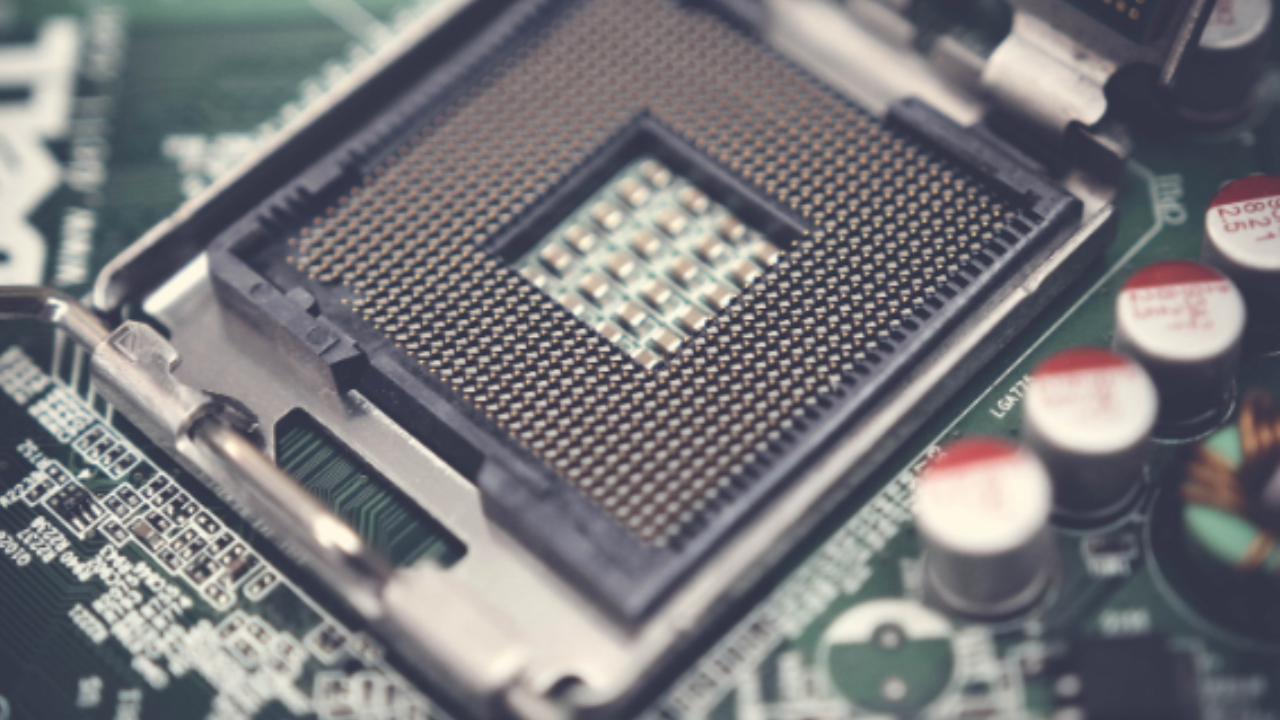Your Processor’s speed affects the running speeds of your PC’s programs greatly. The clock speed of your computer is a crucial component in determining the performance of your PC. Ever wondered what role the clock speed has in increasing the performance of your PC? Can you use the clock speed to improve your PC’s processing speed? In this article, we will discuss what exactly is clock speed, why is it used, and the Effect Of Clock Speed on the Processor’s Speed.
What is Clock Speed ?
A few parameters are used to assess your processor’s performance, clock speed being one of those parameters. Clock speed, having “Hertz” as its unit, is the frequency at which the clock generator of a processor, generates pulses. This means a CPU with a 2.8 GHz clock speed executes 2.8 billion pulses per second. These pulses are used to synchronize computer tasks and operations.
A processor needs clock speed because it needs the other parts of the computer to work with it, and to do so it needs to synchronize them with itself. The processor does this synchronization by generating pulses at a fixed frequency and syncing the other components with these pulses.
The speed at which these pulses are generated is called clock speed. A clock speed is also referred to as the CPU’s frequency or clock rate. It indicates how rapidly a CPU can process data, which means a higher clock speed will show a better performance while running routine programs.
Effect Of Clock Speed on the Processor’s Speed
The clock speed is an important factor in considering the performance of a computer. The clock speed has a direct relation with the CPU’s performance. This means that increasing the clock speed increases the performance of a computer. It does so because an increased clock speed means your PC can execute the tasks at a fast pace.
Decreasing the clock speed decreases the task execution speed of your PC.
While this relation is created considering only the clock speed and your CPU’s performance in the equation. In some cases, other factors of your PC might stop your PC’s performance from decreasing at the same level.
For example, if you increase the clock speed but have only one RAM in your PC, the computer performance will not be increased according to your requirement as the deficiency of RAM capacity will be holding it back. The same goes for cache size or the number of cores attached.
Is Clock Speed the Only Factor Responsible For Your Computer’s Performance ?
Clock speed is just one factor. Although improving clock speed can help the PC in running different programs fastly and smoothly, other factors affect a processor’s overall performance.
- The number of cores a PC has a significant effect on its performance. Having more than one core e.g dual core or quad core can help in managing and dividing the time-consuming workloads.
- Another factor is bus speed, which determines the speed of communication with external peripheral devices, like the mouse, keyboard, etc.
- The number of RAMs your computer has and the RAM speed
- Size of cache
Do processor cores and clock speed have the same tasks ?
Although both the processor core and the clock speed are working towards the same goal, they have completely different functions. Let us have a look at the differences in detail
Processor Core
Processor cores are the separate processing units placed inside the CPU. The processor core works by receiving the task instructions for a single task, performing it, and storing the information temporarily in the RAM. Having multiple processor cores means your PC can now multitask. It means you can run multiple programs at once, e.g you can run a picture editing program while browsing the internet,
Clock speed
The clock speed of a PC determines its speed to complete a task, like retrieving information and taking action by interpreting the instructions. Having a high clock speed means your PC speed has increased, which leads to getting more done in lesser time.

What to prefer, more clock speed or more processor cores?
Having a PC with high clock speed and multiple processor cores seems like an ideal computer. But having both at the same time can prove to be damaging to your computer architecture. So choosing between these two depends upon you, and the nature of the work you are doing.
Having a high clock speed with a single or dual core allows you to run a single task at a faster pace. While having more processor cores with average clock speed allows you to perform multiple tasks at once, at an average pace. As we know that not everyone needs the same level of clock speed or processor cores because the requirements vary depending on the nature of the work
Processor Speeds for Laptops vs Desktop PCs
These days, a CPU operates in a range of clock speeds, with the minimum being the “Base” clock speed and the maximum range being the “Turbo” clock speed. This process of raising the clock speed is known as “Overclocking”. Having a range of available clock speeds help in dealing with highly demanding tasks, as the PC raises the clock speed temporarily to deal with the respective task. When the job is done, the PC returns the clock speed to the base level.
You should consider that having the PC run at a higher clock speed for a long time can overheat the processor. So, when dealing with demanding tasks, you should have a better cooling system for your processor so that the task is done timely, without damaging the processor. There is also a risk of your system becoming unstable, and crashing as a result of it.
Frequently Asked Questions
What is clock speed?
The speed of a microprocessor, at which it interprets and then executes the received instructions is called clock speed. Clock speed is the frequency of the pulses generated by the processor to synchronize the other computer parts.
What is the unit for measuring clock speed?
As it is a frequency, we measure clock speed in “Hertz”. Usually clock speed is in either MegaHertz (MHz) or GigaHertz (GHz).
How does clock speed affect the performance of a microprocessor?
Clock speed has a linear relation with the performance of the microprocessor. This means increasing the cock speed increases the performance of the microprocessor. Although clock speed is not the only factor affecting the microprocessor performance. The other factors include the number of cores, number of RAMs, type of hard drive, bus speed, size of the cache, etc.
Is there a limit to which you can increase your PC’s clock speed?
Yes, you cannot increase our processor’s speed beyond a specific limit. You can find the maximum limit for your PC’s clock speed on your chip’s case.
For example, if the “2GHz part” is written on your chip case, it means it will perform without error when its clock speed is set below or close to 2GHz while maintaining the device’s temperature.
Conclusion
The clock speed of a PC determines the speed at which your PC executes the tasks. This is why it is an important factor in determining your PC’s performance. Measured usually in Hertz, clock speed has a direct relation with your PC’s performance. It means you can increase your PC’s clock speed manually if your want to squeeze out more performance from your PC.
But you have to do it in a controlled way while monitoring other factors like the heat produced. If you want to increase your PC’s clock speed to aid in a task, you need to study the safe ways to do so, or you will damage your PC’s hardware for good. If done right, using the clock speed is the most common way to get your desired PC speed.


Comments are closed.